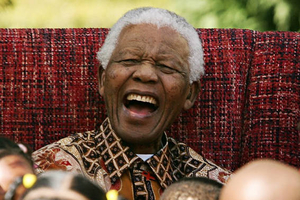A Tribute to Nelson Mandela - Tata
Monday, 9 December 2013
Labels:
Madiba,
Nelson Mandela,
Nelson Mandela Death aged 95,
Tata Mandela
Posted by
Unknown
at
02:02
0
comments
![]()
Funerals V Memorial Service
Thursday, 7 November 2013
Increasingly, the two terms are used interchangeably, especially with cremation growing in popularity making it easier to move the remains of the deceased.
Traditionally, funerals take place with the body or the ashes of the deceased person present. Memorial services have been ceremonies without the presence of the body although an urn containing the ashes may be present.
Funerals are usually held immediately following death whereas memorial services may take place weeks or months away. In the past, memorial services also have been less formal than funerals with greater participation by family and friends.
This is changing, however, as funerals are becoming less centered on the leadership of one person. Memorial services do not necessarily take place in a funeral home or religious setting.
They may be held in the home or other comfortable gathering place. Funerals are most often held in traditional settings (cemetery, chapel or church) and are often followed by a graveside service. In the future, “funerals” and “memorial” services will both be used to describe the service of celebrating death.
Labels:
funeral service,
Funerals V Memorial Service,
memorial services
Posted by
Unknown
at
08:01
0
comments
![]()
Mandela now being treated at home
Sunday, 8 September 2013
Labels:
Mandela now being treated at home,
Mandla home
Posted by
Unknown
at
07:20
0
comments
![]()
Quotes about Life and Death
Tuesday, 6 August 2013
God pours life into death and death into life without a drop being spilled. ~Author Unknown
All say, "How hard it is that we have to die" - a strange complaint to come from the mouths of people who have had to live. ~Mark Twain
I'm not afraid of death. It's the stake one puts up in order to play the game of life. ~Jean Giraudoux, Amphitryon, 1929
All our knowledge merely helps us to die a more painful death than animals that know nothing. ~Maurice Maeterlinck
To himself everyone is immortal; he may know that he is going to die, but he can never know that he is dead. ~Samuel Butler
Watching a peaceful death of a human being reminds us of a falling star; one of a million lights in a vast sky that flares up for a brief moment only to disappear into the endless night forever. ~Elisabeth Kübler-Ross
Gaily I lived as ease and nature taught,
And spent my little life without a thought,
And am amazed that Death, that tyrant grim,
Should think of me, who never thought of him.
~René Francois Regnier
The fear of death follows from the fear of life. A man who lives fully is prepared to die at any time. ~Mark Twain
We cannot banish dangers, but we can banish fears. We must not demean life by standing in awe of death. ~David Sarnoff
Men fear Death, as children fear to go in the dark; and as that natural fear in children is increased with tales, so is the other. ~Francis Bacon, Essays
If you spend all your time worrying about dying, living isn't going to be much fun. ~From the television show Roseanne
Some people are so afraid to die that they never begin to live. ~Henry Van Dyke
Posted by
Unknown
at
09:41
0
comments
![]()
Nelson Mandela still in critical condition
Sunday, 7 July 2013
Members of Nelson Mandela's family have met tribal leaders in his home village to discuss his seriously ill health.
The former South African leader remains in a critical condition in hospital in Pretoria after he took a turn for the worse over the weekend, the country's President Jacob Zuma said in his latest statement.
Mr Zuma said: "We must support him and support his family.
"We must demonstrate our love and appreciation for his leadership during the struggle for liberation and in our first few years of freedom and democracy by living out his legacy and promoting unity, non-racialism, non-sexism and prosperity in our country."
Sky's Alex Crawford said elders in the village of Qunu had been briefed on Mr Mandela's condition, and that they had been told he was no longer breathing on his own. His family described the 94-year-old's condition as "at its worst", Crawford said. The anti-apartheid leader has been in intensive care since he was last admitted to hospital on June 8 for a recurring lung infection. His wife, Graca Machel, has been by her husband's bedside since he was taken ill.
Tough Times Funeral Transport
Labels:
Nelson Mandela,
Nelson Mandela critical condition. Nelson Mandela breaking news
Posted by
Unknown
at
05:46
0
comments
![]()
Funeral of last surviving South Africa to hold Victory Cross
Tuesday, 4 June 2013
Funeral of Captain Quinton Smythe,Natal Carabineers...the last surviving South African to hold the medal.
Labels:
captain quinton smythe funeral,
south african funeral,
victoria cross south african
Posted by
Unknown
at
05:32
0
comments
![]()
The Earth Rise Memorial Space Flight Service from Celestis
Tuesday, 7 May 2013
From the stars we are born, to the stars we will return...
Labels:
burial in space,
memorial space flights
Posted by
Unknown
at
05:38
0
comments
![]()












.jpg)



